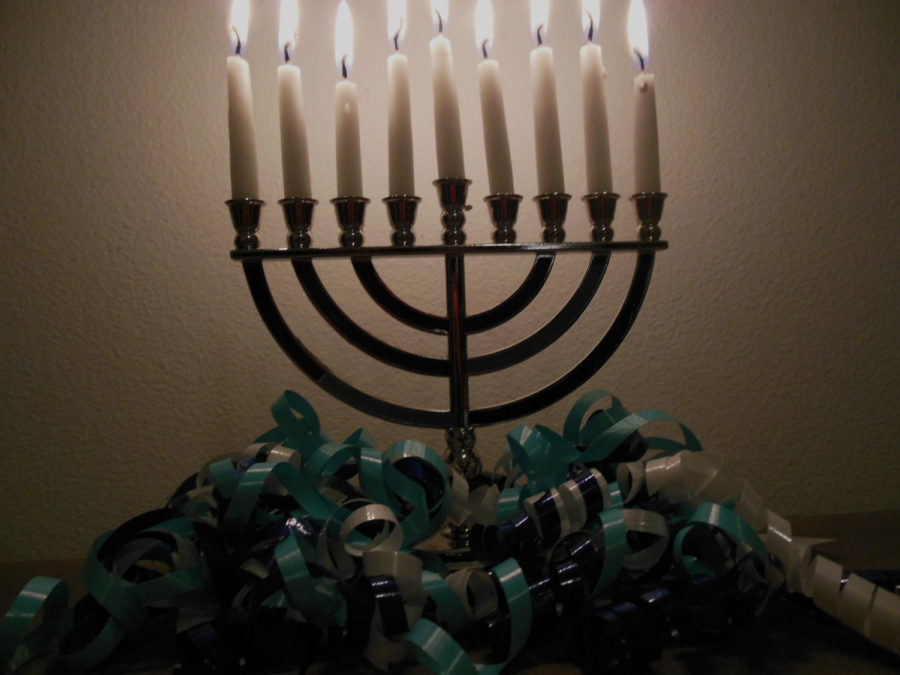Hanukkah means “dedication”
Hanukkah, a Jewish holiday, will take place this year from Dec. 18 to Dec. 26.
December 12, 2017
According to the Pew Research Center, 1.9 percent of Americans identify as Jewish. That means there are more than 6 million people of the Jewish faith in the United States, and many of them will be lighting menorahs throughout Hanukkah.
Tuesday night marks the first night of Hanukkah, the Jewish holiday which celebrates the Israelite revolt against their Seleucid conquerors in the second century B.C.E.
The Seleucids forced Israelites to assimilate to Greek culture. The books of Maccabees details how the Seleucid leader, Antiochus Epiphanes, desecrated their temple with alters to foreign Gods.
After the Israelites took back their temple, there remained enough oil to light the ceremonial menorah for one night, but the flames persisted for eight days while the Temple was rededicated by the Jews.
Thus, there are eight nights of Hanukkah, which means “dedication” in Hebrew.
Jews gather with friends and family during Hanukkah and celebrate by singing songs, praying and exchanging gifts. They traditionally indulge in foods fried in oil in acknowledgement of the miracle that allowed a single night of oil to last for eight. Foods such as jelly-filled donuts known as sufganiyot and latkes, a pancake-like dish made from fried potatoes, are present at many meals throughout Hanukkah.
Also commonly found during Hanukkah is brisket and kugel, a dessert commonly made with egg noodles and cinnamon.
A candle is lit for each night of Hanukkah. Two candles burn on the first night; the first candle lit is called the shamash, which is used to light the corresponding candles that represent each night. The shamash is traditionally in the middle holder and is slightly above or below the other candles. An additional candle is lit each night until nine candles burn on the final night of Hanukkah.
Hanukkah is a time for Jews to remember the re-dedication of the Temple and ask what they should dedicate themselves to. It’s a time to remember the persecuted few who triumphed over the many, and the oil that gave light beyond its capacity.
Hanukkah is not the “Jewish Christmas.” It falls on the 25 of Kislev, the third month in the traditional Hebrew calendar, which means it is typically celebrated in November or December.
The Jewish Federations of North America offers details on its website about how modern Jews celebrate Hanukkah.
“Jewish law prohibits work for one hour after candle lighting. This time period is traditionally used for ‘family learning,’ specifically to teach children about Hanukkah through study and discussion. Families also use the period after candle lighting for games, singing and gift-giving,” the site reads.







